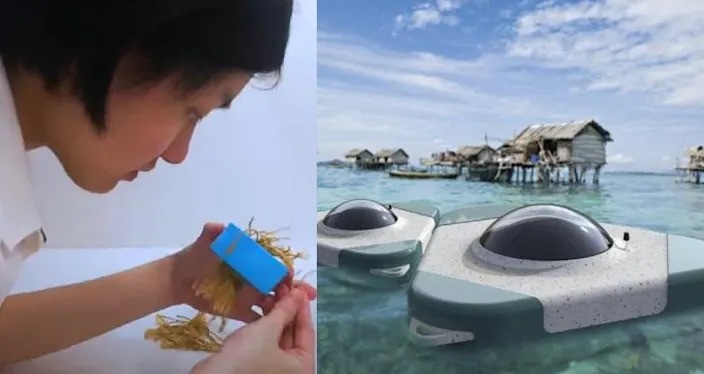
An invention that could provide clean drinking water to "sea nomads" — communities living near the ocean — has earned three Malaysian students a spot to compete at the James Dyson Awards, an annual competition that recognizes young design engineers with inventive solutions to real-world problems.
Malaysia’s best: Asia Pacific University of Technology & Innovation (APU) sophomores Bennie Beh Hue May, Loo Xin Yang and Yap Chun Yoon won the top prize of 10,000 Malaysian Ringgit ($2,400) in Malaysia’s search for its official entry to the international design competition, MalayMail reported.
- The product design students bested 120 other participants with their sustainable seawater desalination pod called the “WaterPod.”
- Eighty-four international finalists are now vying for a chance to win the top prize of $40,000, with an additional $6,600 for the winners’ university.
- According to the James Dyson Awards website, Dyson engineers will narrow the competitors down and announce a shortlist of the top 20 contestants on Oct. 13.
How WaterPod works: The invention utilizes a self-cleaning solar desalination system, which facilitates seawater absorption through a wick. It has a special semi-spherical cover exposed to sunlight that collects vapor, which eventually condenses into a potable liquid.
- The desalinated water then flows into a storage chamber that can hold between 8 to 10.5 gallons (30.28 to 39.75 liters), which users can then collect using a pump.
- In their online pitch, the students describe the WaterPod as an alternative to bigger desalination plants, since it “is designed to be simple and only uses basic science” to do the same process.
- The students came up with the device’s floatation concept after studying the needs of local communities living near the sea, like the Bajau tribe in Sabah.
- Eekang Ooi, a lecturer affiliated with a nonprofit that helps sea nomads, inspired the students to pursue the project.
Why this matters: Sea nomads, who live on the coasts and islands in Southeast Asia, reportedly collect rainwater or barter tap water wherever and whenever they can due to lack of access to clean water.

